It's only seven months, but Simon Easterby has big shoes to fill.
With Andy Farrell away with the British and Irish Lions until the end of the summer, Ireland's long-term assistant Easterby has earned his promotion to the top job, albeit for a temporary spell.
With Ireland looking to win a third Six Nations title in a row, expectation is high, and with England first up at Aviva Stadium next Saturday, there is no time to ease into the role.
Prendergast, Crowley, or both?
By starting Sam Prendergast for Ireland's final two games in November, it’s hard to tell whether Farrell created a headache for Easterby, or saved him one.
Had the Leinster out-half earned a couple of caps off the bench late last year, any decision to start him during this Six Nations would have been seen as a seismic call by the interim coach.
It’s been less than 18 months since Johnny Sexton’s retirement, and despite fears that Ireland would be struggling to find a strong enough replacement for him at out-half, the Irish management are in a position where they have at least two attractive options to pick from in Prendergast and Jack Crowley. Ciarán Frawley is also a viable third choice option.
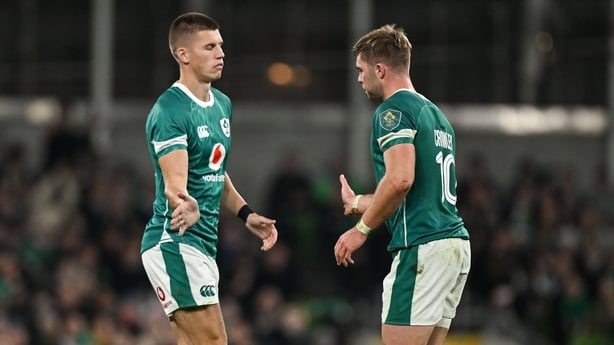
Having started the final two games of the Autumn Nations Series, and maintained good form for Leinster, Prendergast is the favourite to get the nod for the opener against England next Saturday, but Crowley’s impressive performances in Munster’s two most recent Investec Champions Cup outings would have been exactly the response that Farrell and Easterby wanted to see. Rather than wilt after losing his starting place, the 25-year-old is coming into the championship with a spring back in his step. It would be no surprise to see him get the nod next week.
The debate over who should be first choice has burned steadily since November, and while it will continue to be played out in public for some time, it’s entirely possible that Easterby rotates the pair over the course of the championship, similar to how South Africa have with Handre Pollard, Manie Libbok and Sacha Feinberg-Mngomezulu over the course of 2024.
With five games to be played, there are plenty of minutes to go around. Why fully commit to one, when the opportunity is there to develop both?
Balancing discipline with defence
There was no greater changing trend in 2024 than Ireland's discipline.
On the face of it, an average of 10 penalties conceded per game is nothing to be too concerned with; France, New Zealand and South Africa were all either on or just above that number during the year.
The issue is the context of how and where those penalties were given away. No team conceded more penalties between halfway and their own 22 than Ireland last year, allowing regular opportunities for their opponents to kick points.
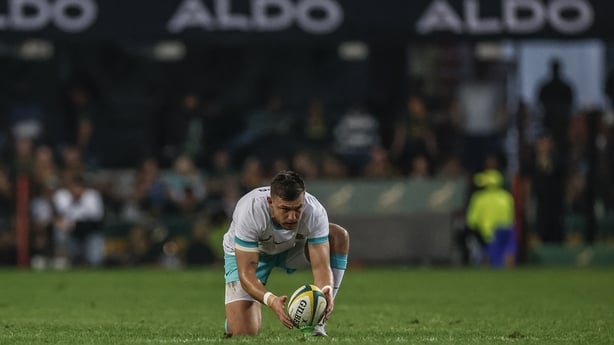
Against South Africa in their second summer Test, and then versus New Zealand and Argentina in November, Ireland gave up a combined 66 points in those three consecutive games, with a staggering 54 of those coming from penalty kicks. Later that month, 12 of the 19 points Australia logged at the Aviva came from Noah Lolesio penalties.
The second element of the Irish indiscipline is that they have been conceding penalties in flurries, and that in turn is leading to cards.
Between the summer of 2021 and the end of the 2023 World Cup, Ireland picked up a total of three yellow cards across a 29-game span – just under a yellow card for every 10 games played. In 2024 they averaged one card per game, 11 in 11.
That dramatic swing prompts the theory that the coaching staff aren’t hugely worried about the changing trend in their discipline.
Their rate of cards per game between 2021 and 2023 was by some distance the lowest of the Six Nations and Rugby Championship sides; across that same period New Zealand had 21 yellows and seven reds in 40 games, while the Springboks had 25 yellows and three reds in 39 matches.
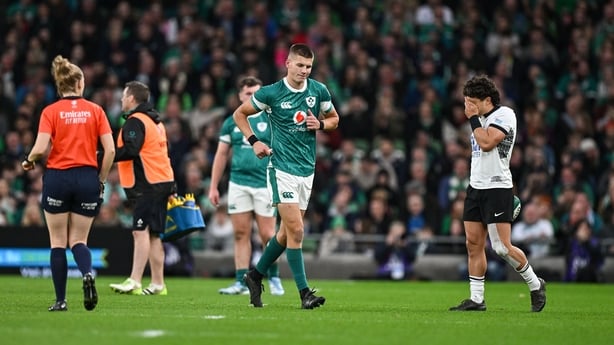
Was there a realisation in the Irish camp that they could afford to be more cynical than they had been? Are they now more willing to risk a 10-minute period with 14 players if there is a net gain at the end?
Additionally, several of those cards came off the back of persistent penalties conceded in their own 22, but in many occasions their defence eventually held out.
The 12 tries they conceded in 11 games last year was the fewest tries of any major side, while they also had the lowest rate of 22 entries and points per 22 entry given up over the year.
If those defensive numbers hold up over 2025, Ireland may be content to play high stakes with their discipline.
One last stand for the old guard?
Rather than make sweeping changes to the side after the Rugby World Cup, Farrell worked in new players bit by bit over the course of 2024.
Crowley, Joe McCarthy and Calvin Nash were the main beneficiaries in last year’s Six Nations, before Jamie Osborne got his opportunity in the summer series against South Africa. In November, Prendergast, Cormac Izuchukwu, Gus McCarthy and Thomas Clarkson all saw gametime, albeit the latter two came in to compensate for injury. Caelan Doris was also promoted to captain after Peter O’Mahony (below) held the role for the Six Nations.
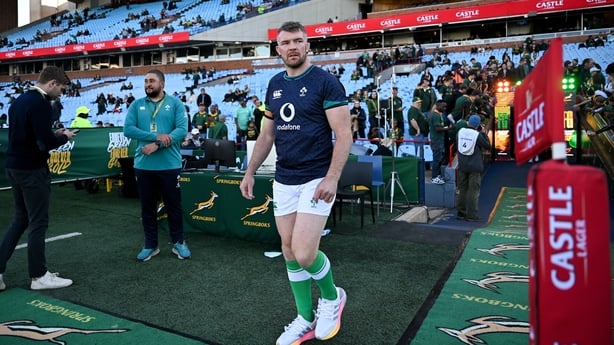
Easterby’s Six Nations squad earlier this month didn’t produce any real surprises, with loosehead Jack Boyle the only uncapped player in the main panel, and it’s expected the interim coach will lean on the experience he has in the group, before the summer fixtures against Georgia, Romania and Portugal allows him the opportunity to widen the net.
It’s possible this will be a final Six Nations for some. Cian Healy, Conor Murray, O’Mahony and Iain Henderson are all on the hunt for a sixth championship title, which would be a record in the Six Nations era.
Healy has strongly hinted that he’s into the final season of his career, and has spoken of how badly he wants to cap it off with one more trophy for Ireland. It’s likely the 37-year-old supplements Andrew Porter for the majority of this championship at loosehead, with Boyle to have a minor involvement, before stepping into a larger role in the summer.
Murray (below) – who turns 36 in April – has also been coy on whether or not he’ll still be playing next season, but with Craig Casey out for the duration of the tournament, the Munster man will be needed to work in tandem with Jamison Gibson-Park.
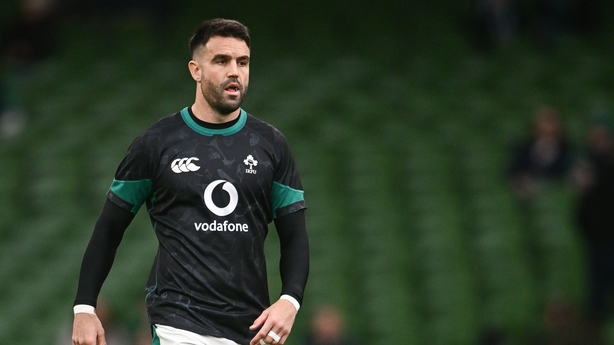
O’Mahony hasn’t given any hints around his future beyond the end of the season, but having played in three of the four Autumn Nations Series games in November, it’s clear he’s still a highly valued member of the squad.
Ulster captain Henderson is slightly younger, turning 33 next month, and while he has agreed a contract next season at his province, the lock is no longer on a central IRFU deal.
With the emergence of McCarthy, and the growing trend of having more athletic, hybrid locks involved on the bench like Izuchukwu and Ryan Baird, the 84-cap veteran is facing stiff competition for gametime.
Listen to the RTÉ Rugby podcast on Apple Podcasts, Spotify or wherever you get your podcasts.
Watch Dragons v Munster (Saturday from 7.15pm) and Ulster v Zebre Parma (Sunday from 5pm) in the BKT United Rugby Championship on RTÉ2 and RTÉ Player.

